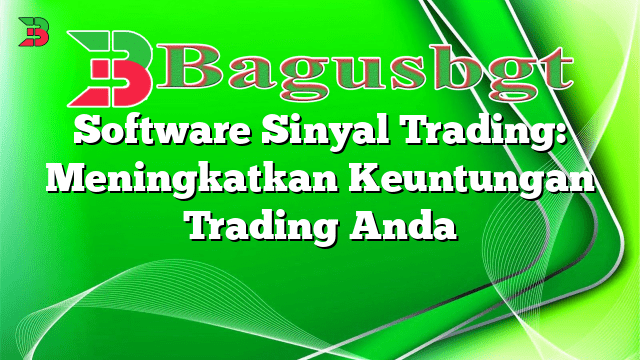Forex trading, also known as foreign exchange trading, is the buying and selling of currency pairs in order to make a profit. It is a decentralized market where participants trade currencies directly with each other or through intermediaries. In this article, we will explore the various fees associated with forex trading and provide you with a comprehensive understanding of how they work.
1. Spread
The spread is the difference between the bid price and the ask price of a currency pair. It is essentially the cost of trading. When you buy a currency pair, you do so at the higher ask price, and when you sell, you do so at the lower bid price. The spread is typically measured in pips and can vary depending on the currency pair and the broker you are using.
Advantages: The spread is often the only fee you need to pay when trading forex. It is transparent and easy to understand. Some brokers offer tight spreads, which can result in lower trading costs.
Disadvantages: The spread can widen during volatile market conditions, which can increase your trading costs. Additionally, some brokers may charge higher spreads compared to others, so it is important to choose a broker that offers competitive spreads.
2. Commission
Some brokers charge a commission on top of the spread. This fee is usually based on a percentage of the trade value or a fixed amount per lot traded. Brokers who charge commissions often provide access to a deeper liquidity pool and may offer additional trading features and tools.
Advantages: Brokers who charge commissions may offer tighter spreads, especially for active traders. They may also provide better trade execution and access to more advanced trading platforms.
Disadvantages: The commission can significantly increase your trading costs, especially if you trade frequently or with larger lot sizes. It is important to consider the commission charged by a broker when comparing trading costs.
3. Overnight Financing
When you hold a position overnight, you may be subject to overnight financing charges or swaps. These charges are based on the interest rate differential between the two currencies in the currency pair you are trading. If the interest rate of the currency you are buying is higher than the interest rate of the currency you are selling, you will receive a positive swap. Conversely, if the interest rate of the currency you are buying is lower than the interest rate of the currency you are selling, you will pay a negative swap.
Advantages: Overnight financing charges can work in your favor if you receive a positive swap. It can be an additional source of income for long-term traders.
Disadvantages: If you hold positions for an extended period of time, the overnight financing charges can accumulate and eat into your profits. It is important to consider these charges when planning your trades.
4. Inactivity Fees
Some brokers may charge inactivity fees if you do not trade for a certain period of time. These fees are designed to encourage active trading and can vary depending on the broker’s policy.
Advantages: Inactivity fees can be avoided by maintaining an active trading account. They can also be seen as a way to ensure that traders are committed and engaged in the market.
Disadvantages: If you are not an active trader, inactivity fees can be an unnecessary expense. It is important to understand the broker’s policy regarding inactivity fees before opening an account.
5. Deposit and Withdrawal Fees
Brokers may charge fees for depositing or withdrawing funds from your trading account. These fees can vary depending on the payment method used and the broker’s policy.
Advantages: Some brokers offer free deposits and withdrawals, especially for certain payment methods. They may also reimburse fees charged by third-party payment processors.
Disadvantages: Deposit and withdrawal fees can add up, especially if you frequently move funds in and out of your trading account. It is important to consider these fees when choosing a broker.
6. Currency Conversion Fees
If you are trading in a currency that is different from your account currency, you may be subject to currency conversion fees. These fees are charged when you convert one currency into another at the prevailing exchange rate.
Advantages: Some brokers offer competitive currency conversion rates or waive currency conversion fees altogether.
Disadvantages: Currency conversion fees can significantly impact your trading costs, especially if you frequently trade in different currency pairs. It is important to consider these fees when choosing a broker.
7. Platform Fees
Some brokers charge fees for using their trading platforms. These fees may be in the form of a monthly subscription fee or a fee per trade executed on the platform.
Advantages: Some brokers offer free access to their trading platforms, especially for active traders or high-volume traders. They may also provide advanced trading features and tools.
Disadvantages: Platform fees can increase your trading costs, especially if you trade frequently or use advanced trading features. It is important to consider these fees when comparing brokers.
8. Data Fees
If you require real-time market data or access to advanced charting tools, you may be subject to data fees. These fees are charged by data providers and can vary depending on the level of data you require.
Advantages: Data fees are typically optional and can be avoided if you do not require real-time market data or advanced charting tools.
Disadvantages: Data fees can add up, especially if you require access to multiple data feeds or advanced charting tools. It is important to consider these fees when choosing a trading platform.
9. Slippage
Slippage occurs when the price at which you execute a trade differs from the price you intended to trade at. It can result in higher trading costs and can occur during periods of high market volatility or low liquidity.
Advantages: Slippage can work in your favor if the executed price is better than the intended price. It can result in improved trading results.
Disadvantages: Slippage can increase your trading costs, especially if it occurs frequently or during large trades. It is important to consider slippage when planning your trades.
10. Hidden Fees
Some brokers may have hidden fees that are not clearly disclosed. These fees can include account maintenance fees, statement fees, or fees for additional services.
Advantages: Hidden fees can be avoided by carefully reviewing the broker’s terms and conditions and asking for clarification if needed.
Disadvantages: Hidden fees can significantly increase your trading costs if you are not aware of them. It is important to thoroughly research a broker’s fee structure before opening an account.
In addition to the spread-based model, some brokers offer a fixed commission model. Instead of charging a spread, these brokers charge a fixed commission per trade. This commission is typically based on the trade value or a fixed amount per lot traded.
The advantages of the fixed commission model are similar to those of the commission-based model discussed earlier. Tighter spreads, better trade execution, and access to advanced trading platforms are some of the benefits you can expect. However, it is important to note that the fixed commission model may not be suitable for all traders. If you trade in smaller volumes or have a low-risk trading strategy, a spread-based model may be more cost-effective.
Fee Type |
Advantages |
Disadvantages |
|---|---|---|
Spread |
Transparent and easy to understand |
Can widen during volatile market conditions |
Commission |
Tighter spreads and better trade execution |
Can significantly increase trading costs |
Overnight Financing |
Potential additional income for long-term traders |
Accumulates and eats into profits if not managed |
Inactivity Fees |
Encourages active trading and commitment |
Unnecessary expense for non-active traders |
Deposit and Withdrawal Fees |
Some brokers offer free deposits and withdrawals |
Can add up, especially with frequent transfers |
Currency Conversion Fees |
Competitive rates or waived fees by some brokers |
Significantly impact tradingcosts, especially for frequent traders |
Platform Fees |
Some brokers offer free access to advanced platforms |
Can increase trading costs, especially for active traders |
Data Fees |
Optional and can be avoided if not required |
Can add up, especially for advanced data and tools |
Slippage |
Can work in your favor with improved trading results |
Can increase trading costs, especially during volatile markets |
Hidden Fees |
Avoidable by reviewing terms and conditions |
Can significantly increase trading costs if not aware of |
Q: Are there any forex brokers that offer zero fees?
A: While it is rare to find a broker that offers no fees at all, some brokers may offer promotions or account types with reduced or waived fees. It is important to carefully review the terms and conditions and consider any potential hidden fees.
Q: How can I minimize my forex trading fees?
A: To minimize your trading fees, consider the following:- Choose a broker with competitive spreads and low commissions.- Avoid unnecessary trades and keep your trading activity focused.- Be mindful of overnight financing charges and plan your positions accordingly.- Select a broker with favorable deposit and withdrawal fees.- Use a trading platform that offers free access to advanced features and tools.- Review and understand all fees associated with trading before opening an account.
Q: How do I compare forex trading fees between brokers?
A: When comparing forex trading fees between brokers, consider the following factors:- Spreads: Compare the typical spreads for the currency pairs you intend to trade.- Commissions: Compare the commission rates, especially if you are an active trader.- Overnight Financing: Review the swap rates for the currency pairs you trade and consider their impact on your positions.- Inactivity Fees: Determine if the broker charges inactivity fees and how they are structured.- Deposit and Withdrawal Fees: Consider the fees associated with funding and withdrawing from your trading account.- Currency Conversion Fees: If you trade in different currency pairs, compare the conversion rates or fees charged.- Platform and Data Fees: Assess any fees associated with using the broker’s trading platform or accessing real-time market data.- Hidden Fees: Thoroughly review the broker’s terms and conditions for any additional or undisclosed fees.
In Conclusion
Understanding the various fees associated with forex trading is essential for any trader. By considering the advantages and disadvantages of each fee type, you can make informed decisions that align with your trading strategy and goals. Remember to thoroughly research and compare brokers to find the most cost-effective solution for your trading needs. Minimizing trading fees can have a significant impact on your overall profitability, so it is important to pay attention to these costs and factor them into your trading plan. Happy trading!
 Bagus Banget Kumpulan Informasi terbaru dari berbagai sumber yang terpercaya
Bagus Banget Kumpulan Informasi terbaru dari berbagai sumber yang terpercaya



